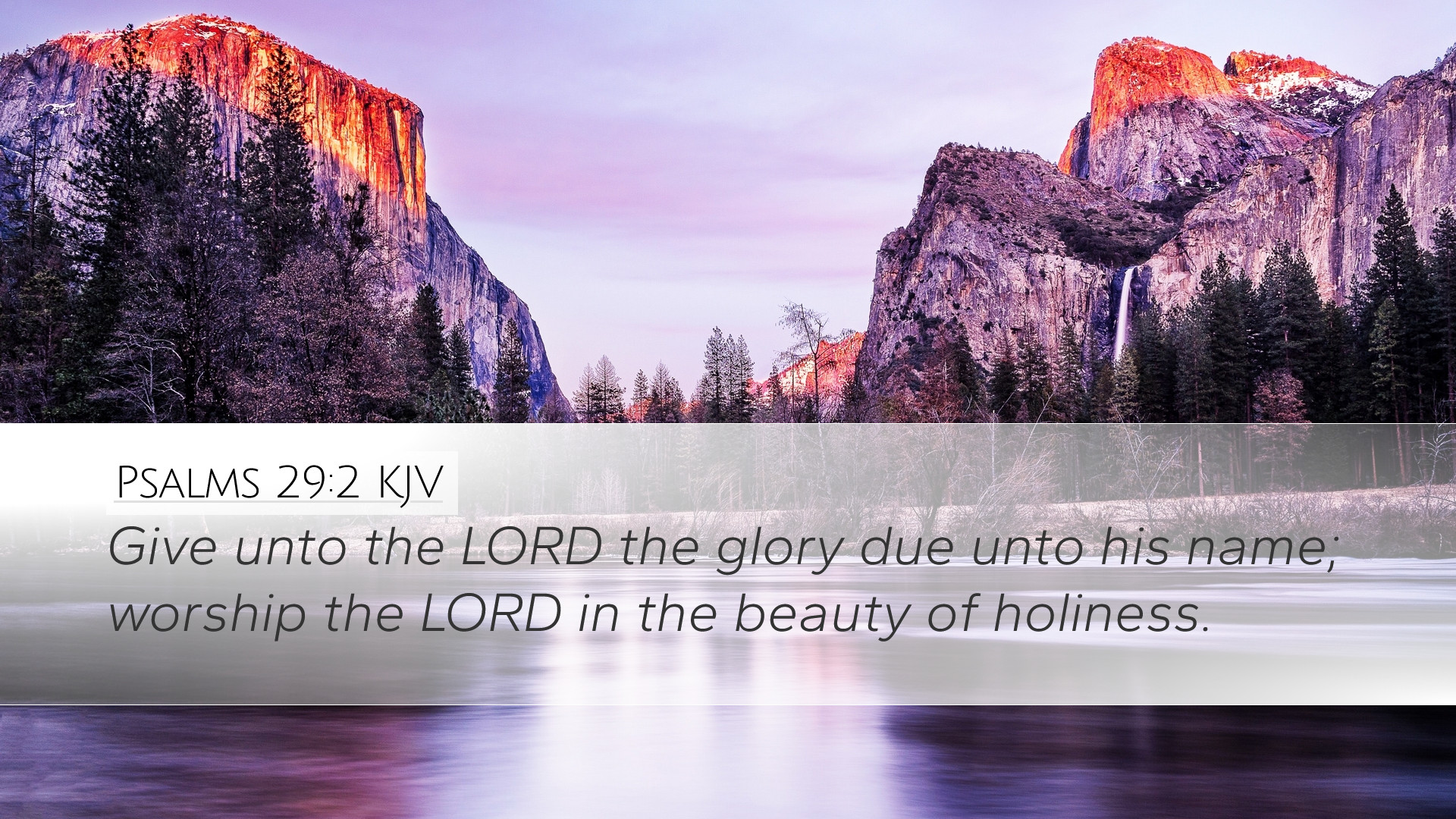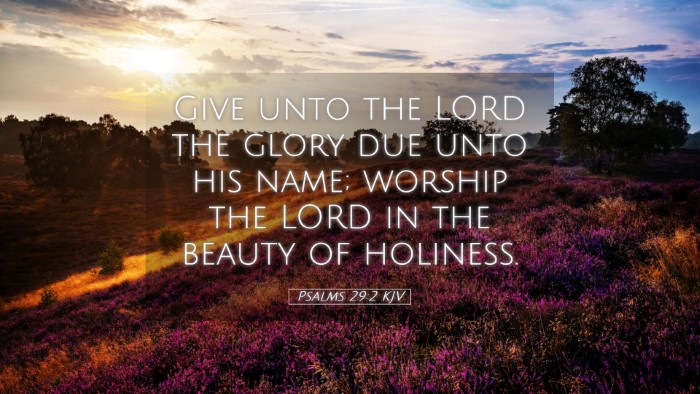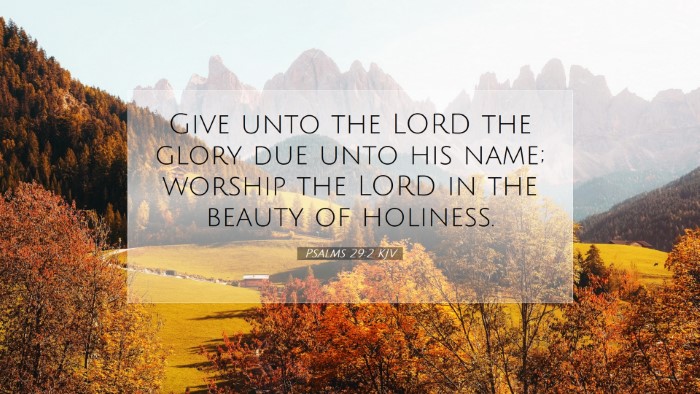Commentary on Psalms 29:2
Verse Reference: Psalms 29:2 - "Give unto the LORD the glory due unto his name; worship the LORD in the beauty of holiness."
This verse encapsulates a profound theological principle: the inherent worthiness of God deserving reverence and worship from His creation. It is pivotal for theological reflection and pastoral teaching, emphasizing our response to God's majesty and holiness.
Exegesis and Theological Insight
The command to ascribe glory to God is central in this verse. Matthew Henry remarks that 'the whole creation should give glory to the Creator.' This reflects an understanding of God's sovereignty and the appropriate human response. Worship is not merely an activity; it is an acknowledgment of God’s authority and an affirmation of His character.
Albert Barnes elaborates on the notion of glory, suggesting that glory involves ascribing the attributes and acts of God that reveal His greatness. This includes His omnipotence, holiness, and grace. The call to 'worship the LORD in the beauty of holiness' implies that our worship should reflect God's purity and ethical perfection. Each act of worship thus becomes a declaration of our recognition of His nature.
Worship as a Response to God's Nature
Adam Clarke emphasizes the significance of worship as reflective of both God's glory and our relationship to Him. Worship in 'the beauty of holiness' suggests that the true essence of worship is found in a life of holiness that seeks to imitate God. It highlights the transformative power of divine worship, where believers are called to reflect God's character in their lives.
The Importance of Holiness
The term 'holiness' signifies not only purity but also the distinctiveness of God. Henry points out that holiness in worship serves to draw believers closer to the divine. As we approach God, our hearts and lives must align with His will, making our worship not just an external action but an internal reality.
- Worship Requires Preparation: There is an implicit call for preparation in worship. Before approaching God, believers must prepare their hearts, as suggested by the beauty of holiness.
- Corporate Worship: This verse can also be applied to corporate gatherings, where the community collectively acknowledges God's glory.
- Reflection of God's Glory: Worship reflects God’s glory back to Him, recognizing that all He has provided and done warrants an appropriate response.
Practical Applications for Ministry
For pastors and church leaders, understanding the gravity of Psalms 29:2 encourages a culture of worship that prioritizes both the glory of God and the attitudes of the worshippers. Here are a few applications:
- Teach the Nature of God: Church teachings should consistently reflect God’s attributes, emphasizing the glory that belongs to Him alone.
- Emphasize Holy Living: In worship, encourage congregants to pursue lives that reflect holiness, as this is fundamental to genuine worship.
- Create Sacred Spaces: The physical environment of worship should reflect the seriousness of coming before a holy God, fostering an atmosphere conducive to reverence and awe.
- Include Diverse Forms of Worship: Emphasize that worship is not solely through singing but can include prayer, scripture reading, and acts of service, all reflecting God’s glory.
Conclusion
In closing, Psalms 29:2 is a powerful exhortation for individual and corporate worship. By recognizing the glory due unto God's name and embodying holiness in our worship, we align ourselves with the divine purpose for which we were created. The insights drawn from public domain commentaries underscore the timeless relevance of this scripture, urging believers toward a deeper, more authentic engagement with the God who is altogether lovely and worthy of all praise.


